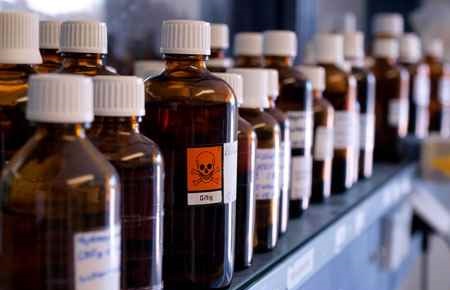
Toxicology Major
Toxicology Studies is a major program that focuses on the scientific study of poisons and other biohazards; their interactions with organisms and their food and respiratory systems; and their prevention, management, and counteraction.
A major program in Toxicology Studies will likely include instruction in toxicological biochemistry, toxic agents and transporters, toxin fate, toxicokinetic and metabolism, toxin classification, molecular toxic mechanisms, extracellular matrices and cell function, bacterial pathogenesis and mutagenesis, pathophysiology and apoptosis, cell stress and injury, studies of specific toxins, and studies of specific organ systems and physiological functions in relation to toxicological problems.
What can you do with a major/degree in Toxicology Studies?
Typically, with a four-year degree in Toxicology, you can find a job as a research technician or laboratory assistant in universities, hospitals, pharmaceutical and biotech industries, private and public research organizations, consulting companies, and government agencies. However, many Toxicologists choose to continue their education, getting a master’s or doctoral degree as doing so will open you up a range of job opportunities.
Trade Associations and Professional Organizations in Toxicology Studies:
Professional associations are groups of specialists dedicated to topics in particular fields. Professional associations provide a wealth of online resources, some of which are geared specifically towards students. These organizations typically also host conferences and events, providing great opportunities for learning and networking across your field of interest.
- American College of Toxicology (.org)
- S. Food and Drug Administration
- American Society of Health-System Pharmacists
- Center for Disease Control and Prevention
- Society of Toxicology
- American Academy of Clinical Toxicology (.org)
Publications/Magazines in Toxicology Studies?
